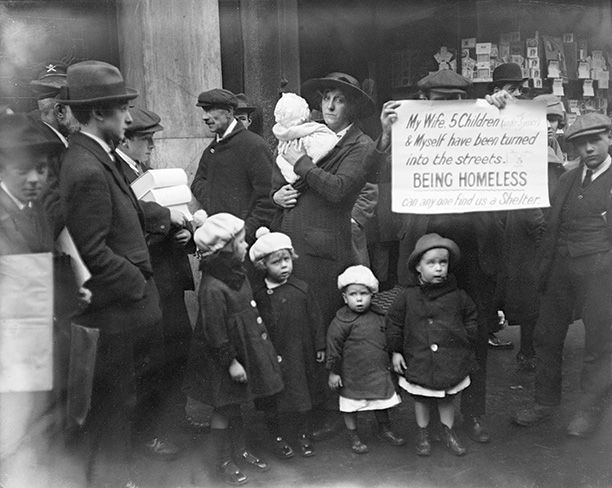“They are the stones by the builder rejected. There is no place for them in the social fabric, while all the forces of society drive them downward till they perish. At the bottom of the Abyss they are feeble, besotted, and imbecile. If they reproduce, the life is so cheap that perforce it perishes of itself.” -Jack London.
London was an American writer, journalist and social activist. In 1903, the Macmillan Press published an account of his personal experience in the grotty East End of London during the 20th century. Dressed as a poor seafarer in search for work, he integrated himself into a society that was far from similar to his own. In doing so, he was able to provide his readers with a first-hand account of how these “stones by the builder rejected” lived.
In 2017, life is quite straightforward, for the majority of us anyway. We work, eat and sleep. Our daily activities consist in catching up with the latest trends on social media, and our biggest worries are whether or not we have signal on our phones.
According to Government statistics, from 2010 to the present day, homelessness has doubled, leaving streets populated with over 4,000 individuals every night. So, just for a moment, let us press pause on our own lives, and think outside of the box. What is happening to the less fortunate? Those whose biggest worry is where their next meal is coming from, not the number of likes they get on social media
Some say it is a “dog eat dog world” out there, so even if we did stop to think of the homeless and the hungry, would we care? Would you? If you don’t, reading The People of the Abyss will give you a whole new perspective on what desperation and degradation actually mean. London’s aim seems to be that of raising awareness regarding the severity of the issue in question.
Chapter by chapter, he describes his various experiences in detail, from mundane activities, such as getting in to the spike, to generic issues, such the effect this environment will have on future generations. One line struck me in particular: “And so, dear soft people, should you ever visit London Town, and see these men asleep on the benches and in the grass, please do not think they are lazy creatures, preferring sleep to work. Know that the powers that be have kept them walking all the night long, and that in the day they have nowhere else to sleep.” We see youths out on park benches, sleeping and smoking something they shouldn’t, and we automatically reach the conclusion that they are lazy low lives. But through number crunching and statistics of his own, London is quite right in calling the East End the “City of Degradation”, because there are no opportunities for the poor, and the precariousness of life is no help in the matter, and quite frankly this is still true today. If we don’t start doing something about it, it will be a “World of Degradation”.
Controversially, however, from lines such as “Certainly there could be nothing homelike about it to you and me, who know what home really is”, it is clear that the addressed spectator is an American. So, is London calling for social reform? Or is he simply pointing out how these disgraces could never occur in his own country? Is it a cry for solidarity, or an assertion of his own country’s superiority?
